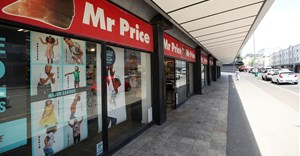E-commerce success: How to gain a million customers in the first year

The e-commerce industry is in its nascent stage in Africa, as technological sophistication on the continent has lagged behind the rest of the world due to the late adoption of the internet. Wesley Maraire, support group leader for best practices at Frost & Sullivan, points out that African consumers have a deep mistrust in e-commerce, primarily because of inherent challenges that did not exist prior to the emergence of e-commerce.
Firstly, brick and mortar stores traditionally provide face-to-face interaction in-store, as well as at point of sale (POS), where customers purchase by means of cash. Secondly, in addition to the absence of human contact, either e-commerce companies face the challenge of choosing between two primary retail strategies, increasing revenue or decreasing costs.
The emergence of the internet revolution in Africa over the last decade has led to 16% of the one billion population gaining access to the internet. This has precipitated the emergence of e-commerce in Africa, which is projected to grow by 40% annually over the next ten years. Companies not recognising the need to migrate to some form of online system that pays particular attention to the customer, may well be left behind.
Turning challenges into opportunities
Companies that will survive in the industry, sustain the business and become profitable, need to execute strategies around three key customer centred areas:
Overcoming the trade-off between quality products and competitive pricing
Addressing the challenge of satisfying the rising service expectations of online shoppers through offering a seamless service experience
- Building long lasting relationships between the company and its customers, which will sustain the business throughout its lifecycle
These three strategies are juxtaposed with relevant case studies that illustrate the empirical impact of successfully implementing such disruptive strategies.
1. Quality products at competitive prices
Modern African consumers from the middle and upper classes constitute 35% of the African population. These consumers are exposed to global product and service standards, which has raised expectations of their online shopping experience to international standards.
The products offered by online stores, therefore, need to be of premium quality, maintaining competitive prices when compared to similar offerings from those of competitors and traditional brick and mortar stores. In essence, the product offering has to differentiate a company from its rivals by adding value to consumers; thus, following the decreasing prices retail strategy and winning the price war. The consumer will purchase premium products online at a lower price than that offered by brick and mortar stores because e-commerce companies have less operational costs.
An example of a best practice is the proactive approach to lowering prices adopted by Menaclick in Morocco. The company diverged from the conventional sourcing of products from wholesalers or manufacturers, storing them in a warehouse and then shipping these to customers. Instead, it employs sales agents who actively negotiate product prices with merchants to whom they provide access to the virtual mall interface (Hmall).
This move has seen the company offering top quality products at the lowest prices in Morocco. For example, a Samsung Galaxy S5 costs USD $796.8 whereas its closest competitor in Morocco charges USD $876.5. Furthermore, the company offers higher-purchase as a payment option to customers so they can pay for products over 12 months, interest free. The company remains ahead of the competitive curve due to its price leadership in the market. Such proactive strategies prove to be effective cost cutting measures for customers who in turn are able to purchase more from the company.
2. Seamless service experience
Profitable e-commerce businesses in Africa offer excellent customer service; those that thrive offer a differentiated service experience to customers. The customer's experience with the e-commerce website should be streamlined and seamless, from the customer's first visit to the webpage right through to the checkout point.
Customers in Africa are apprehensive about online shopping. It is therefore essential to follow up the purchase with a 'customer care' phone call in order to confirm the order and assure the customer that the purchase has been processed, as well as explain the turn-around time.
Furthermore, an optimal solution to enhance customer satisfaction, such as an online chat system, is a value-add in Africa because it is a cost effective way of communicating, now that more Africans are gaining access to internet services. Such support capabilities assist companies in addressing the absence of human contact challenge and bridges the gap between virtual and brick and mortar stores. Companies implementing innovative strategies centred on seamless service experience will exceed ever-rising customer expectations and be sustainable and profitable in the e-commerce lifecycle.
In Nigeria, the company Konga has employed its own delivery team in major cities such as Lagos, where it uses motorcycles to avoid congestion caused by high traffic volumes. It has partnerships with logistics companies, such as DHL and UPS, to deliver orders to all areas in Nigeria. The trucks are installed with a more efficient GPS tracking system that is synchronised with the company's website to allow real-time package tracking, whereas the old system could only display the last dispatch location.
In addition, the new system adds flexibility, as it allows customers to re-route orders in transit due to the real-time package tracking. These disruptive strategies have enabled the company to gain a customer base of approximately one million within the first year of launching.
Furthermore, it is essential to establish a feedback mechanism to make it easy for customers to communicate with the company. With every customer care phone call received, Konga follows up via email to confirm if the query has been resolved and this feedback mechanism is a big component of the company's key performance indicators (KPIs). The company is a yardstick for African e-commerce companies that communicate a promise of excellence and then deliver on this promise.
3. Relationship building
In Africa, as in developed economies, more power has shifted to the customer to determine the success of an e-commerce company and is often beyond the control of the brand. Companies have to provide a superior level of satisfaction among existing and potential customers in order to increase their bottom line.
E-commerce businesses have to develop marketing and product positioning strategies that create a sense of ownership pride amongst customers. Deeper loyalty in the brand ensures customers continuously return to the website and purchase more products because they identify with the brand. Companies that will gain a competitive advantage in the e-commerce industry will pay particular attention to relationship building elements such as loyalty programmes, as well as pre-launch offers for products.
Cost plays a major role in a customer's decision to purchase from an online store and combining better pricing, quality products and a seamless service experience, together with relationship building elements, will produce insurmountable benefits for companies.
A relevant example of this is the disruptive after sales service approach taken by South African home and kitchenware store, Yuppiechef. The company employs staff whose exclusive function is to write thank you notes to customers for every purchase made. This approach adds a human element that consumers yearn for. Between 2007 and 2011, it experienced a growth rate of 300% and has achieved a year-on-year growth rate of 100%. This may be attributed to the fact that its strategies have resonated well with its customers who relate closely to the sense of community.
It has also introduced other game-changing initiatives such as its online reality TV show (The Art of Baking) that features celebrity chefs such as Sarah Graham. The site has developed into a Mecca for people who love high quality products. An impressive 60% of its customers are repeat buyers, which is above the industry average of 50% in South Africa.
Conclusion and recommendations
The increasing internet penetration rate in Africa of 16% has assisted the rapid growth of the e-commerce industry, which will continue to grow in the future at 40% annually. The industry is customer-centric because it revolves around meeting customer needs.
In line with the three strategies listed in this insight, the industry is heading towards strategic branding innovations that foster customer loyalty through exceeding customer expectations throughout the entire fulfilment cycle.
Consistency of service is, therefore, essential and partnering companies such as logistics need to uphold the brand image as well. When customers receive and open a package, they should feel and experience the same level of service they would feel when purchasing in-store with the assistance of sales staff and POS. Overcoming customer mistrust in e-commerce is critical for any company that will be sustainable and profitable in Africa.
In essence, if companies are not innovating and successfully implementing disruptive strategies centred on the customer, they will be left behind on the competitive curve. For more information, go to www.frost.com.









